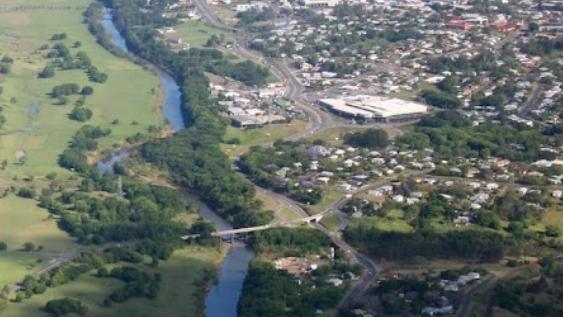Wide Bay Burnett plan: Southeast Qld crucial to Gympie’s future
Welcome to Gympie, the place to live, play … but not work? A new plan suggests the historic gold town could become one of the south-east’s big dormitory suburbs. SPECIAL REPORT

Business
Don't miss out on the headlines from Business. Followed categories will be added to My News.
Welcome to Gympie, the place to live, play … but not work?
It is a potential future for the “tree-change” region, with the new Wide Bay Burnett Regional Plan identifying Gympie’s possible future as a “dormitory suburb” as one of three future opportunities for the region.
“Dormitory suburbs” are predominantly home to people who commute elsewhere for work.
This possibility was driven by continued “population creep” from the state’s southeastern corner into the region, a trend that is expected to help push Gympie’s population to more than 60,000 by 2046.
Mayor Glen Hartwig said opened the door to “attracting skilled workers and industrial and agricultural sector expansion”.
“It is no secret that we are on the border of South East Queensland, which is rapidly filling up, and we are currently planning for this growth through the development of our next planning scheme and Regional Economic Development Strategy,” Mr Hartwig said.
“There is so much that is great about the Gympie Region and our unique features have always attracted people out of South East Queensland.”
It could be a double-edged sword though.
The regional plan says land availability for housing in the Wide Bay Burnett was not an issue but “increasing development pressure from SEQ and particularly the Sunshine Coast may have long term implications” for the housing and rental crunches in Gympie.
“The next two decades will likely see home values continue to increase in the region, and while this is good news for homeowners, it can lock many people on low to moderate incomes out of home ownership,” the report says.

“In the private rental market, people are having to pay more and struggling to find homes that meet their needs, which in turn is putting pressure on social housing.”
The other two opportunities listed in the plan were the potential to renew old housing and consolidate Gympie’s urban area, and that its “tree-change” attributes were close to major centres.
Challenges facing Gympie’s development included the region’s flood-prone nature, the need to protect its coastal environments, the Bypass’ impact on future settlement patterns, managing expansion of industry and agriculture near rural residential housing, and where to locate short-term accommodation to meet visitor and temporary worker demand.

The region’s development into a home for southeast corner workers was not the only potential development that could change its face.
Improving freight routes headed west from Gympie, through Kingaroy and beyond to Wellcamp, was a priority.
There was also significant potential for the region to become an electricity powerhouse.
This was not only through the renewable projects already in production or under construction in the north and west, but in a new sphere.
Gympie’s Suncoast Macadamia facility is home to the world’s first ever bioenergy processing plant, which converted empty nut shells to electricity.
It says these shells have a “burning quality … like that of black coal and brown coal” and it was already producing enough power to keep the lights on in 1200 homes.
Other industries could follow suit.
“The region’s agricultural industry, including the forestry sector, provides a wealth of waste that can be used as feedstocks for bioenergy (e.g. cane, manure, wood pulp etc),” the plan says.





